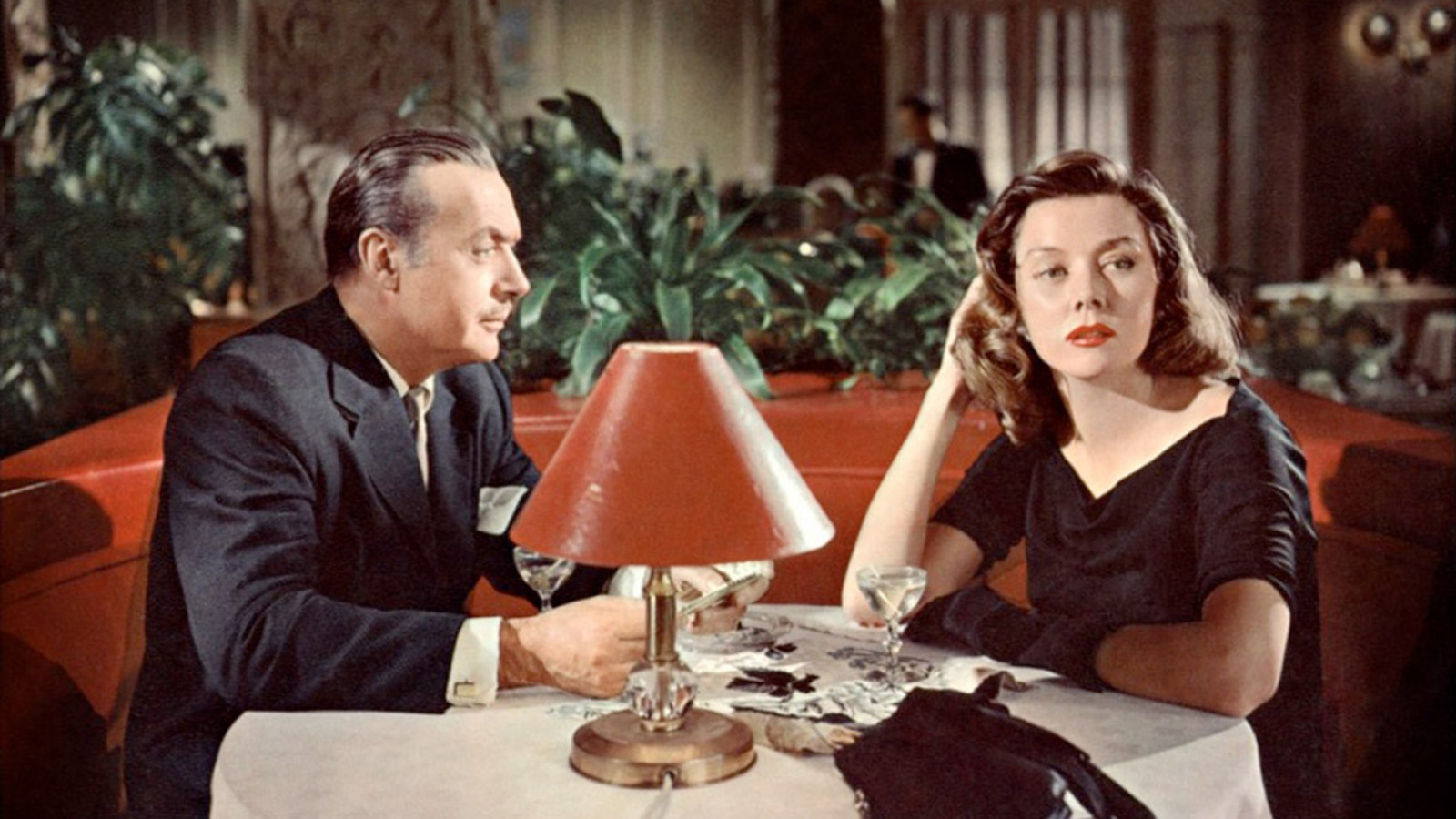By Matías Piñeiro in the September-October 2015 Issue

In the Moment: Gloria Grahame in The Cobweb
Trouble in Mind
After years of being the object of desire and the target of bullets and boiling coffee, Gloria Grahame appeared as the neglected housewife in Vincente Minnelli’s The Cobweb (55). Battling the sexualized energy she cultivated in her film noirs, she plays Karen McIver, a woman married to a respected psychologist (Richard Widmark) who is too busy to pay heed to his wife’s nagging.

From the September-October 2015 Issue
Also in this issue
The line of text written on screen over Grahame’s first entrance seems to draw her character in one stroke: “The trouble began…” But soon enough, after Karen shuts down a heated argument with her husband by saying “You don’t make me feel like a woman,” we learn that much of the trouble relates to sex and the power struggle it sets up. Karen’s dissatisfaction puts into motion a nerve-fraying story within the mental institution that serves as the film’s setting, involving doctors, patients, and an extraordinarily fetishized set of drapes.
In a twist on Erich von Stroheim’s nickname, Grahame becomes the woman you love to hate. She is foolish, unfaithful, stubborn, ill-tempered, and just plain bad. But her mature performance and Minnelli’s understanding of character make Karen McIver a figure with human resonance, a woman left alone in her desiring, morally lost, and frustrated by every action she undertakes.
Through Minnelli’s eyes, there are no good guys or bad guys. All the characters share the same cobweb: a CinemaScope frame that avoids close-ups, releasing Grahame from the raised-eyebrow trick already seen enough in the films of Nicholas Ray and Fritz Lang. She builds the character through the accumulation and contrast of different states. Karen begins by behaving lasciviously toward a young mental patient and continues on as a caring wife. An argument with her husband thrusts her into a state of hysteria. This is only followed by the strain and fear of becoming a deceived wife, and the anxiety that leads her to villainous actions.
The film’s bittersweet ending doesn’t lack a wicked sense of humor. To comfort a disturbed patient, Karen employs the same object that had caused him distress, a traumatically ubiquitous set of drapes. Trouble may be healing.



